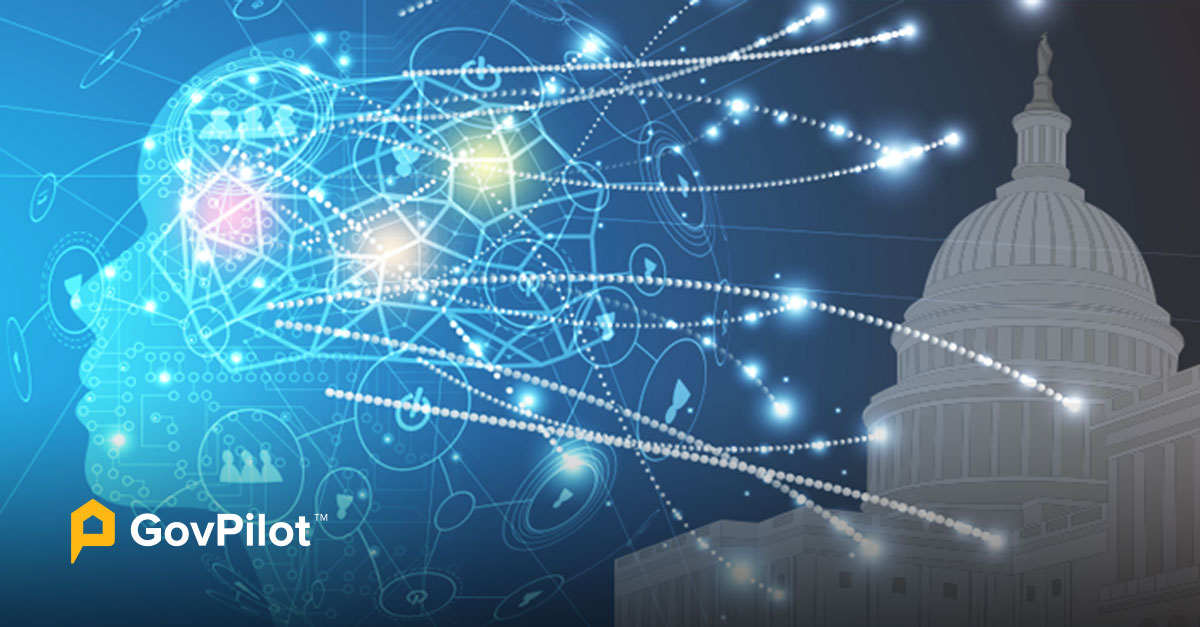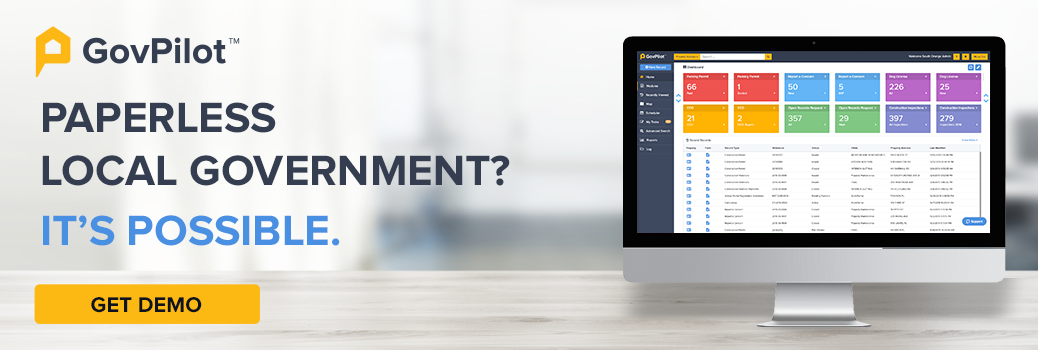In the rapidly changing world of the 21st century, government officials are experiencing exciting and challenging transformation. Artificial intelligence (AI) has become a pervasive topic, casting a significant shadow over our future. The constant discussions about AI's growing influence can be overwhelming for the officials who are responsible for society's well-being.
It's important to understand that government officials, like all of us, navigate uncharted territory. They recognize the urgency of adapting to this emerging technological shift yet often grapple with the vast scale and complexity of the AI revolution. As society advances into an AI-driven future, it confronts the monumental task of harnessing this potent force for the greater good.
Let's delve into how AI can improve public services, optimize resource allocation, and enhance transparency in decision-making. Together, let us uncover AI's potential to create smarter, more responsive governments, equipping officials with the knowledge and confidence to embrace the AI era.
What is AI in Government?
Artificial intelligence (AI) is a transformative force in government digital transformation by redefining how government agencies operate, enhancing their efficiency, responsiveness, and overall effectiveness. AI’s primary contributions to government include automating routine tasks, freeing up valuable time and resources. Additionally, through AI-driven data analysis, government agencies make data-informed decisions swiftly and accurately for their city’s strategic planning around budgeting, resource allocation, and policy development.
How Does AI Help With Government Communications?
AI can assist in citizen interactions. AI-powered chatbots enable 24/7 accessibility, responding instantly to citizen inquiries and service requests. This enhances citizen satisfaction and relieves agency staff of repetitive, time-consuming tasks.
GovTip: Another vital way to improve your citizen communications with government technology is report-a-concern software, which allows citizens to report non-emergency issues to the relevant government departments and officials from your government website or the GovAlert app. Learn more about How to Report Issues to Government at the Community-Level.
How Does AI Help With Government Data Analysis?
Another promising use case is predictive analytics. AI can analyze historical public sector data to forecast trends, enabling proactive decision-making in areas like public safety, infrastructure maintenance, and urban planning.
This proactive approach helps governments allocate resources efficiently and respond swiftly to emerging challenges.
Unlocking the Benefits of AI for Local Governments
In an era characterized by rapid technological advancement, local governments increasingly turn to artificial intelligence (AI) as a formidable ally in their mission to serve their communities better. Here are the benefits to embracing AI government technology to the benefits of your citizens and government employees:
Enhanced Citizen-Government Communication with Generative AI
One of the foremost advantages of integrating AI into local government operations is the ability to provide citizens with seamless, digital avenues for communication. Generative AI, a subset of AI, empowers local governments to offer efficient and personalized interactions.
For example, a resident seeking information about digitally renewing a business license can receive instant, accurate guidance through an AI chatbot, ensuring a smoother and more user-friendly experience.
Through AI-driven chatbots and virtual assistants, citizens can engage with their local government at any time, from anywhere. These AI-powered interfaces that are integrated in can promptly address queries, provide information on services, and even assist in filling out forms or applications.
Making Government Processes Faster with Robotic Process Automation (RPA)
GovPilot’s municipal software is at the forefront of automating key government processes using Robotic Process Automation (RPA). RPA is a game-changer for local governments, as it can handle repetitive and rule-based tasks with unparalleled efficiency.
For instance, when a digital permit application such as a construction permit or pet license is submitted via your government website, it is automatically passed instantly to the relevant government officials to review and approve.
This accelerates the processing time and minimizes the risk of errors, ensuring that the government delivers its services with precision and speed. AI for government will rapidly continue to advance the ways that localities can automate processes.
Data-Driven Decision-Making with Advanced Analytics
Another vital facet of AI's contribution to local governments is data analytics and research. The technology’s capabilities extend to automatically collecting tangible data about citizens and their municipal services. This data is then transformed into actionable insights, empowering local governments to make informed decisions.
GovPilot can analyze trends in service requests, enabling local governments to allocate resources strategically.
Suppose there is a sudden surge in pothole repair requests in a particular area. In that case, AI can detect this trend using data collected from GovPilot and promptly allocate resources to address the issue swiftly, enhancing overall service delivery.
Learn more about the Benefits of Digital Data Storage for Governments.
Preparing Local Governments for an AI-Enabled Future
As the potential of artificial intelligence (AI) becomes increasingly evident, local governments are presented with a unique opportunity to revolutionize their operations and services. To embark on this transformative journey, governments must adopt a proactive approach, integrating government software seamlessly into their workflows.
Here's a comprehensive guide on how local governments can advance AI integration.
Embrace Digital Transformation with GovPilot
A critical initial step for local governments is embracing digital transformation through cutting-edge government technology like GovPilot. GovPilot's platform offers a robust suite of tools that streamline processes, enhance communication, and drive efficiency.
By integrating GovPilot's solutions, local governments can transition from traditional, paper-based workflows to agile, digital systems. This shift reduces bureaucracy and sets the stage for AI integration by creating a tech-savvy infrastructure.
Once you embrace digital permitting and licensing, cloud-based public data storage, and online forms for everything from government asset management to municipal inspections with GovPilot, you’ll have lots of data and digital services to integrate AI with.
Digitize Data Storage and Processes
Central to the AI journey is digitizing data storage and processes.
Storing data in the cloud ensures accessibility and security while enabling efficient data sharing and collaboration among all government departments. As AI thrives on data, this step is foundational for leveraging AI's capabilities effectively.
Optimize Government Website Design
A local government's website is often the primary interface between citizens and their municipality. As local governments prepare for AI integration, optimizing the design and functionality of their websites becomes paramount.
User-friendly navigation, clear information dissemination, and interactive features lay the groundwork for introducing AI-powered elements like generative chatbots. GovPilot's expertise in this area can guide governments in crafting websites that are not only visually appealing but also highly functional.
Initiate Data Collection for AI Insights
The collection of actionable data is a prerequisite for AI's prowess. From tracking service requests to monitoring trends in citizen engagement, this data can eventually be fed into AI models, empowering local governments with predictive analytics and strategic planning capabilities.
Educate Municipal Workers on AI
A successful AI integration journey necessitates the participation and understanding of municipal workers. Local governments should prioritize educating their workforce about AI's potential and its implications for their roles.
By fostering a learning culture and embracing change, government employees can become AI advocates, utilizing AI-powered tools to enhance efficiency and impact.
Prioritize regular technology training for local government officials. Learn more about How Onboarding Government Software for Municipal Employees Works and What to Include in Cybersecurity Training for Government Workers.
Establish Regulatory Bodies for AI Governance
As local governments dive into AI integration, they must proactively address ethical considerations and establish regulatory bodies to govern AI deployment. These bodies can ensure AI is used responsibly, transparently, and aligned with local regulations.
Explore more Tips for Newly Elected Officials.
Modern Government Security
As local governments embark on the transformative journey of AI integration, it's crucial to underscore the importance of modernizing government cybersecurity. The synergy between AI and municipal workflows is a promising leap forward, but it also necessitates robust security measures to safeguard sensitive data and operations.
GovPilot's software solutions exemplify this imperative by offering efficiency gains and state-of-the-art cybersecurity features. As municipalities digitize data storage and processes, they must proactively address and make progressive steps to ensure modern cybersecurity.
Some critical elements of modern government cybersecurity include cloud-based technology, creating Government IT Disaster Recovery Plans, switching to a .gov domain, encrypting sensitive information, training employees on cybersecurity hygiene, and more.
With such practices, governments are one step further into enjoying all the benefits AI technology can offer.
Closing the Gap: Local Governments and the AI Revolution
In this era of rapid technological advancement, local governments stand at the precipice of a remarkable transformation. The fusion of artificial intelligence (AI) and municipal workflows promises to usher in an era of smarter, more responsive governance.
As we've explored, AI empowers local governments by enhancing citizen engagement, automating processes, and providing data-driven insights. It's a potent tool, but it's true potential can only be fully realized when governments take the leap toward comprehensive digital transformation.
But before you can fully embrace AI in your community, you must first embrace government software for digitizing citizen services and municipal workflows. To take your digital transformation to the next level, book a free consultation with GovPilot.
AI for Government FAQs
What is AI?
AI, or Artificial Intelligence, refers to computer systems and algorithms that simulate human intelligence, enabling them to perform tasks that typically require human intelligence, such as problem-solving, learning, and decision-making. AI technologies include machine learning, natural language processing, and neural networks.
Why should governments care about AI matter?
AI should matter to governments because it offers transformative capabilities to enhance public services, optimize resource allocation, and increase transparency.
It enables the automation of routine tasks, data-driven decision-making, and streamlined citizen interactions, ultimately improving government efficiency and responsiveness. In the future, governments may be able to use artificial intelligence across departmental workflows, such as an AI accountant to automate financial processes, a virtual-assistant AI to schedule meetings, etc.
How can artificial intelligence transform the government?
There is no limit to how much artificial intelligence can improve the government, but here are three main ways it contributes in the present:
- AI automates tasks, aids in data-driven decision-making, and streamlines citizen interactions.
- AI enables predictive analytics for public safety and resource allocation.
- AI can revolutionize governance
What role can generative AI play in government?
Generative AI can enhance government by providing efficient, personalized interactions with citizens. It powers chatbots and virtual assistants that offer instant responses, information, and assistance, improving citizen-government communication.
Read on for the latest government trends:









